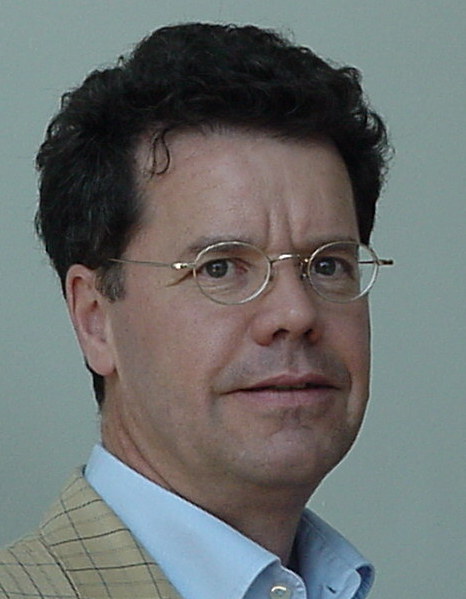University of Colorado
Forty-Sixth Annual DeLong Lecture Series
Department of Mathematics
Professor Ieke Moerdijk
Logic, Lie Theory and Operads
|
Date |
Time |
Room |
Title |
||
|
Monday, October 5, 2009 |
4:00-5:00 pm |
BESC 180 |
Some applications of geometry to logic Although geometry and logic are subfields that seem far apart, there are many interesting cross-connections. We will discuss some of these, in particular how geometric structures such as sheaves can be used to shed light on what can and what cannot be proved in specific formalisations of mathematics. (Monday's lecture should be accessible to a general audience with some mathematical background.) Following Monday's lecture, there will be a reception in honor of Professor Moerdijk at the Koenig Alumni Center, 1202 University Avenue (the SE corner of Broadway and University). |
||
|
Wednesday, October 7, 2009 |
4:00-5:00 pm |
DUAN G125 |
To what extent is Lie theory for groupoids like that for
groups? Lie groupoids play an increasingly important role in foliation theory, symplectic and Poisson geometry, and non-commutative geometry. In this lecture, we explain how some basic properties of Lie groups extend to groupoids, and how some other properties don't. (Wednesday's lecture is independent of the first lecture and requires some minimal familiarity with Lie groups and/or differential geometry.) |
||
|
Friday, October 9, 2009 |
4:00-5:00 pm |
DUAN G125 |
An extension of the theory of simplicial sets Simplicial sets form the main combinatorial tool for algebraic topologists. For example, simplicial sets occur as nerves of categories, and as such play a central role in algebraic K-theory. I will sketch a theory of "dendroidal sets", which contains that of simplicial sets and allows one to construct the nerves of operads. The theory involves interesting combinatorial aspects of finite trees. (Friday's lecture is independent of the first two lectures and will be more in the style of a topology seminar.) |
||

Ieke Moerdijk |
||
Izak (Ieke) Moerdijk studied Mathematics, Philosophy and General Linguistics at the University of Amsterdam. He received his PhD in Mathematics from the same institution in 1985, with the distinction Cum Laude. Subsequently he worked at the University of Chicago and at the University of Cambridge, before joining the Mathematics Department of the University of Utrecht in 1988, where he has been a Professor of Topology since 1996. Professor Moerdijk was awarded a Huygens Fellowship from NWO in 1986 and a PIONIER grant, again from NWO, in 1995. He held visiting positions at Cambridge (St John's College), Montreal (McGill University), Sydney (University) and Aarhus, among others. Professor Moerdijk was elected member of the KNAW (Royal Academy of Arts and Sciences) in 2006. Professor Moerdijk's current research interests include algebraic and differential topology (operads, Lie groupoids, Lie algebroids), and applications of topological structures in mathematical logic. He is the coauthor of several well-known books, including "Sheaves in Geometry and Logic: a first introduction to topos theory" with Saunders Mac Lane (Springer-Verlag, 1992, 1994), and "Introduction to Foliations and Lie Groupoids" with J. Mrcun (Cambridge University Press, 2003). |
DeLong Lecture Series | ||
This Lecture Series is funded by an endowment given by Professor Ira M. DeLong, who came to the University of Colorado in 1888 at the age of 33. Professor DeLong essentially became the mathematics department by teaching not only the college subjects but also the preparatory mathematics courses. Professor DeLong was a prominent citizen of the community of Boulder as well as president of the Mercantile Bank and Trust Company, organizer of the Colorado Education Association, and president of the charter convention that gave Boulder the city manager form of government in 1917. After his death in 1942, it was decided that the bequest he made to the mathematics department would accumulate interest until income became available to fund DeLong prizes for undergraduates and DeLong Lectureships to bring outstanding mathematicians to campus each year. |
||
|
|
CU Math Home